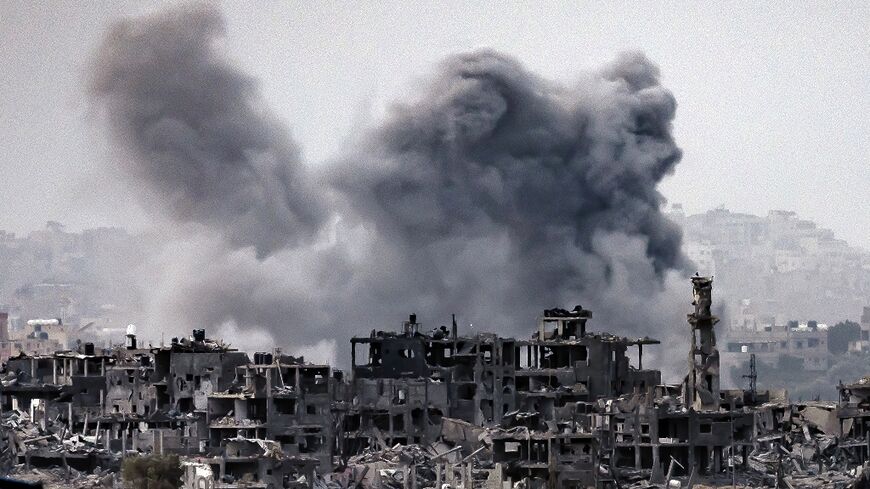US, Israel hold virtual talks over threatened Rafah invasion
The virtual meeting between US and Israeli officials took place a week after the American abstention from a United Nations cease-fire resolution ratcheted up tensions between the two countries.

WASHINGTON — Senior US and Israeli officials on Monday held what they described as a “constructive” virtual meeting on Israel’s planned military offensive in Rafah, which the Biden administration fears would cause mass casualties and a humanitarian disaster in the Gaza Strip’s last refuge.
The meeting came amid growing tensions between Israel and its top ally, the United States, over the former’s plan to invade the southernmost city on Gaza’s border with Egypt, where some 1.4 million Palestinians are sheltering from the war.
A joint US-Israeli statement said the two-hour-long meeting was “constructive" and would be followed by in-person discussions as soon as next week.
"The US expressed its concerns with various courses of action in Rafah. The Israeli side agreed to take these concerns into account,” the statement read.
Ron Dermer, a minister in Israel’s war cabinet, and Tzachi Hanegbi, Israel’s national security adviser, were expected to hold high-level talks in Washington last week. But Israeli Prime Minister Benjamin Netanyahu canceled their visit in protest over the United States’ decision to abstain from a UN Security Council resolution calling for an immediate cease-fire in Gaza during the remainder of Ramadan.
Days later, the White House said Israel would be rescheduling the gathering. On Monday, White House press secretary Karine Jean-Pierre downplayed that the meeting took place virtually rather than in-person.
“We have laid out our concerns about this for some time, and I think it's important that both sides are having this discussion,” Jean-Pierre said of a potential Israeli assault on Rafah.
Participating in Monday's virtual meeting were Dermer and Hanegbi as well as representatives from the Israeli military and security agencies. National security adviser Jake Sullivan and Secretary of State Antony Blinken were among the US officials taking part.
The Biden administration says it shares Israel’s goals of eliminating the remaining Hamas battalions in Rafah, but that its military must produce a viable plan to provide shelter or evacuation routes for the city’s civilian population. Privately, the administration has advocated for a more limited operation focused on high-value targets.
The virtual session on Monday came hours after the Israeli military said it withdrew its forces from Al-Shifa Hospital in northern Gaza following a two-week-long siege of the medical facility and surrounding neighborhood. Israel said its forces killed at least 200 armed militants, including senior Hamas operatives, and recovered weapons, intelligence and explosives inside Gaza City’s main hospital.
Gaza’s Civil Defense said 300 bodies have so far been found inside Al-Shifa Hospital. Tedros Adhanom Ghebreyesus, the director-general of the World Health Organization, said Sunday that at least 21 patients had died in the Israeli operation.
The Gaza Health Ministry on Monday said the death toll from the nearly six-month-long war had surpassed 32,800, with women and children accounting for a majority of the deaths. The Israeli military said that 600 of its soldiers have died in Gaza since the war erupted on Oct. 7, when Hamas-led militants stormed southern Israel and killed some 1,200 people.
Negotiators from Egypt, Qatar and the United States are pushing for a six-week halt in the fighting, during which Hamas would free roughly 40 of the 100 hostages it’s still holding in exchange for Israel's release of Palestinian prisoners. One of the reported sticking points in the talks is the militant group’s demand that a deal include the full withdrawal of Israel troops and the return of displaced Palestinians to northern Gaza.
Netanyahu, who is facing growing domestic pressure over the hostages, insisted during a press conference Sunday evening that he was doing everything in his power to bring them home.
“Those who say I don’t do enough to secure the release of our hostages are wrong and misleading,” Netanyahu said.







